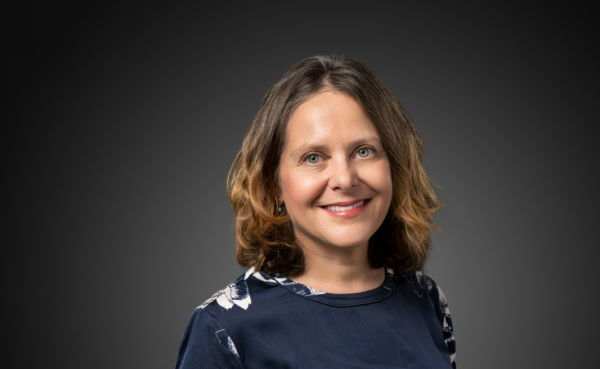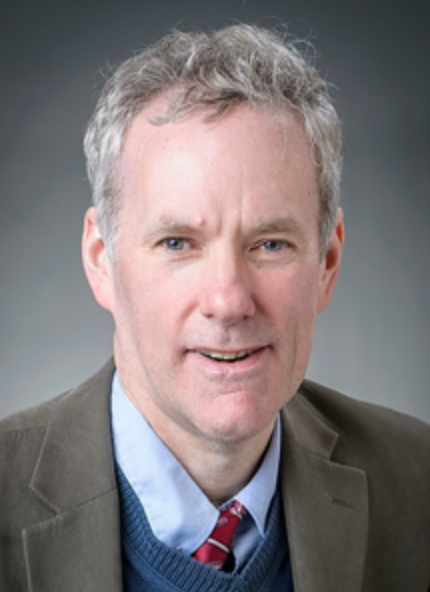Cancel Wars: How Universities Can Protect Free Speech, Promote Inclusion, Renew Democracy
Free, public lecture by renowned free speech scholar Sigal Ben-Porath set for March 30 at Grainger
March 24, 2023 | By WCER Communications

Ben-Porath is a professor at the University of Pennsylvania. She has offered guidance to many campuses on free speech issues.
In an upcoming campus talk, nationally recognized free speech scholar Sigal Ben-Porath will suggest ways that students, faculty, and administrators can support democratic renewal on campus and throughout society—even as many democracies today experience rapid political polarization, affecting how people think about policy, get their information, and perceive public institutions.
With sponsors including WCER’s Center for Ethics & Education (CEE) and the UW−Madison Departments of Philosophy and Educational Policy Studies (EPS), the program will take place from 6 to 7:30 p.m. Thursday, March 30, in 1295 Grainger Hall at 975 University Ave., with an introduction of Ben-Porath by School of Education Dean Diana Hess. The talk will be free and open to the public.
“We’re in the midst of a reassessment of how speech should be conducted on our campuses, and of the responsibilities of both faculty and students,” CEE Director Harry Brighouse says. “Too many people think their answers to this are obviously right, even though plenty of reasonable people disagree with them. Ben-Porath reminds us that the issues are hard, as well as important; and yet gives us resources for thinking better about them.”
Ben-Porath, author of the recent book Cancel Wars, is a professor at the Graduate School of Education at the University of Pennsylvania. She also is a member of Penn’s philosophy and political science departments, and is a fellow at Penn Law School’s Institute for Law and Philosophy. She has offered guidance to campuses across the country on policy development and responses to speech controversies.
“Ben-Porath is perhaps the foremost thinker about how we should treat one another in the university,” explains Brighouse, a UW−Madison professor of philosophy and EPS affiliate professor. “She’s investigating some of the hardest and most contentious questions of the moment.”

CEE Director Harry Brighouse
“To what extent should we assume good intentions when speech goes wrong?” Brighouse says, citing one of them. “How can we approach speech in—and beyond—the classroom in ways that will promote, rather than inhibit, learning for all the students and for faculty? Ben-Porath understands that the questions are really difficult, but nevertheless manageable.”
As it is, polarization can create a sense of distance and resentment toward those who do not share our views. Significantly, the boundaries of what can be said in public—norms around speech, freedom of expression, and the consequences for transgressing—are shifting. In this talk, Ben-Porath will illustrate these changing norms in their political and social contexts and focus on the ways in which the norms affect higher education institutions.
She argues that as flashpoints of the current culture wars, colleges and universities can and should take an active role in challenging, and even reversing, these trends. The actions she will suggest—ones that students, faculty, and administrators can take—are designed to spark depolarization, and thus support democratic renewal on campus and throughout society.
“What needs to be protected is the breadth of ideas we are willing to entertain,” Ben-Porath says about free speech on campus. “We need to have an open-minded debate about our differences, and we need to make sure that all different positions are heard in the debate.”
Ben-Porath received her doctorate in political philosophy from Tel-Aviv University in 2000, and was a fellow at Princeton University’s Center for Human Values, Tel-Aviv University’s Safra Center for Ethics, and the Edmond J. Safra Center for Ethics at Harvard University.
Her recent books are Cancel Wars (Chicago 2022), Free Speech on Campus (Penn Press, 2017) and Making Up Our Mind (with Michael Johanek, Chicago 2019).
She chaired Penn’s Committee on Open Expression from 2015 to 2019, and serves on the board of the Andrea Mitchell Center for the Study of Democracy.


